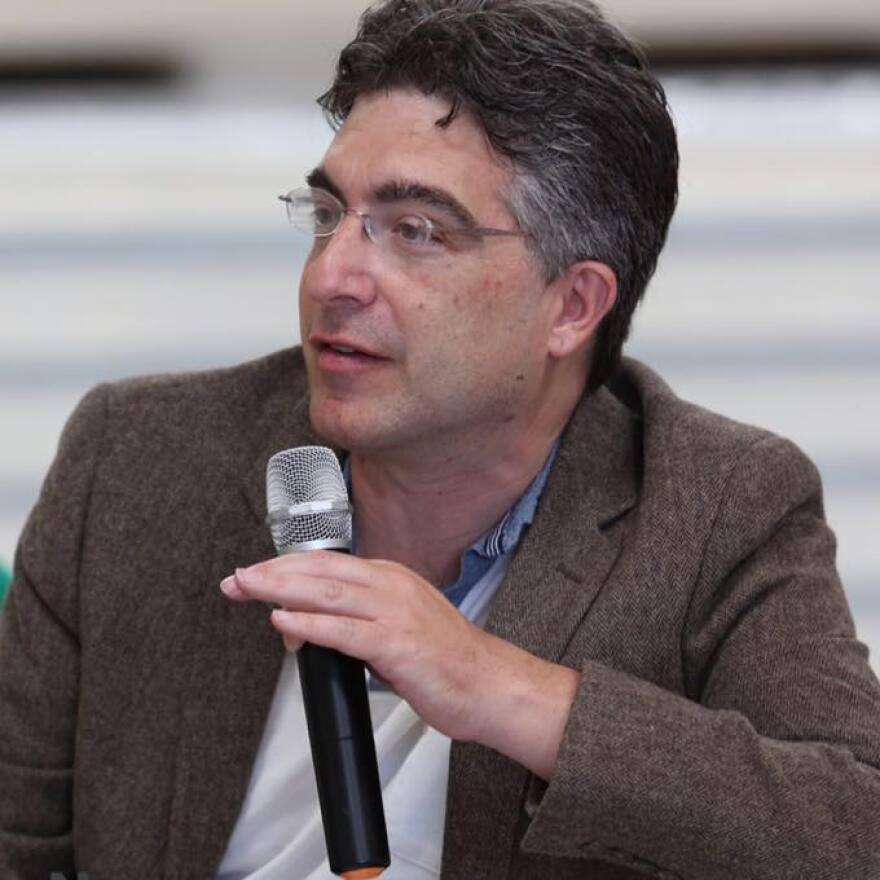Commentary: From time to time we are reminded of the power of humane mass movements, and this week we beheld that potential in Puerto Rico.
For over 10 days, the streets of San Juan became rivers of human beings demanding the resignation of Gov. Ricardo Rosselló. Although a formal impeachment inquiry had begun, the island’s governor had indicated a desire to stick it out.
Crowds of half a million or more begged to differ, occupying the streets by day and by night, chanting and singing, dancing and drumming on anything to be found,revving motorcycles outside of the governor’s mansion in Old San Juan, chanting “Ricky renuncia.”
They breathed tear gas and maintained peaceful protests even as police violence escalated over two weeks, with the police commissionerexplicitly threatening bloodshed.
What was the tipping point? As the story has been told in news reports, the release by journalists of hundreds of pages of text messages between Rosselló and government aides started a political wildfire. The messages exhibited crude language, demeaning comments about women and homosexuals, jokes about shooting the mayor of San Juan, Carmen Yulín Cruz, and much more.
For some, the last straw surely was a dialogue about managing media reports about neglected bodies of victims of Hurricane Maria, and jokes about feeding crows with the cadavers. Imagine the reaction in New York City to government officials joking about those who leaped from the twin towers on Sept. 11, and you can get a sense of the conflagration in people’s hearts.
Yet half a million people do not fill the streets and bring regular business to a halt over tasteless jokes.
It was not simply revulsion or a sense that Rosselló alone had lost his legitimacy to govern the island, but more broadly revulsion over Puerto Rico’s governance, years of poor fiscal management and outright corruption by representatives and colonial plunder by capital; revulsion over a debt crisis that led to austerity policies and the imposition by the U.S. Congress of an unelected Financial Oversight Board tightening the economic noose and prompting an exodus, putting recovery and flourishing of a humane and just society further out of reach.
Occasionally we are reminded that even when circumstances seem overwhelming, and the power structures within which we pursue our lives seem monolithic and impossible to change, that small yet significant change can be accomplished when the ground shifts, the streets fill with people, business stops and power concedes.
That is never the end of the story, of course. Government faces come and go, but in the zigguratof global power, governments do not sit at the very top. In our age, power has been concentrated upward by a coterie of financial institutions and corporate behemoths that bestride the Earth.
To the extent newsrooms find it easier to tell stories about governments than global capital, journalism is tamed. So have the institutional parties that dominate representative democracies, to the point they arguably represent rival factions of a single ruling party on behalf of capital.
It can seem overwhelming and beyond the reach of ordinary people, from the bottom of the ziggurat looking toward the narrow top; yet, from time to time, people climb.
This week's reminder from Puerto Rico, at a time when national and international reporting presents so much sorrow and outrage, is that people can, with courage and purpose, peacefully intervene when institutions fail.
What many of us miss, however, is that switching out an executive here or a legislator there does not change the architecture. Order may resume as people climb back down the tower, but they need to keep watch and have those drums handy.


